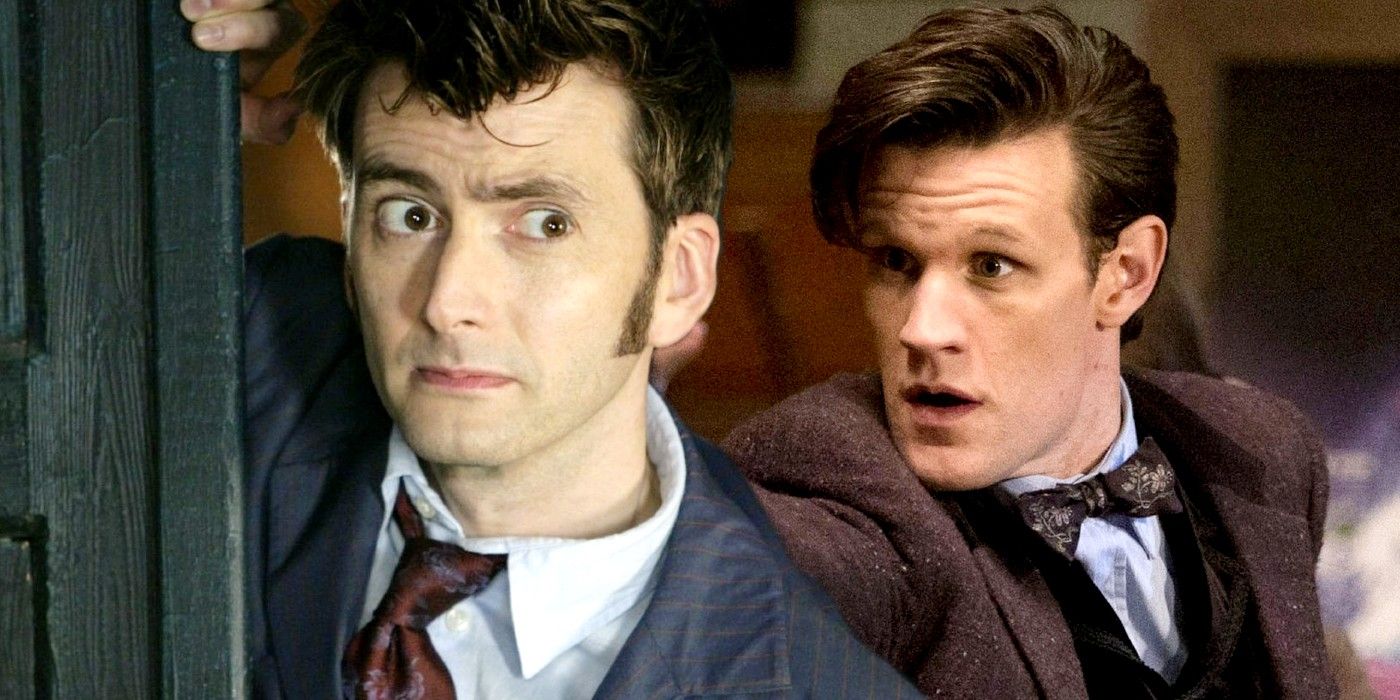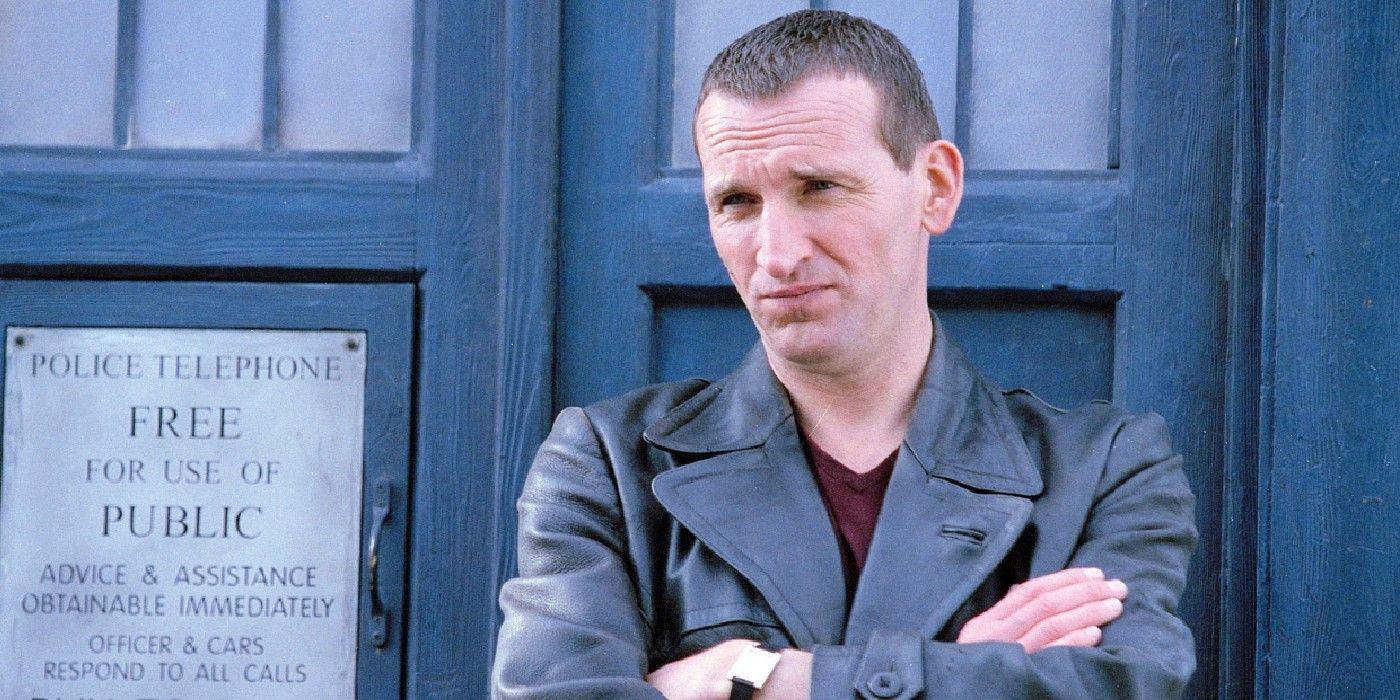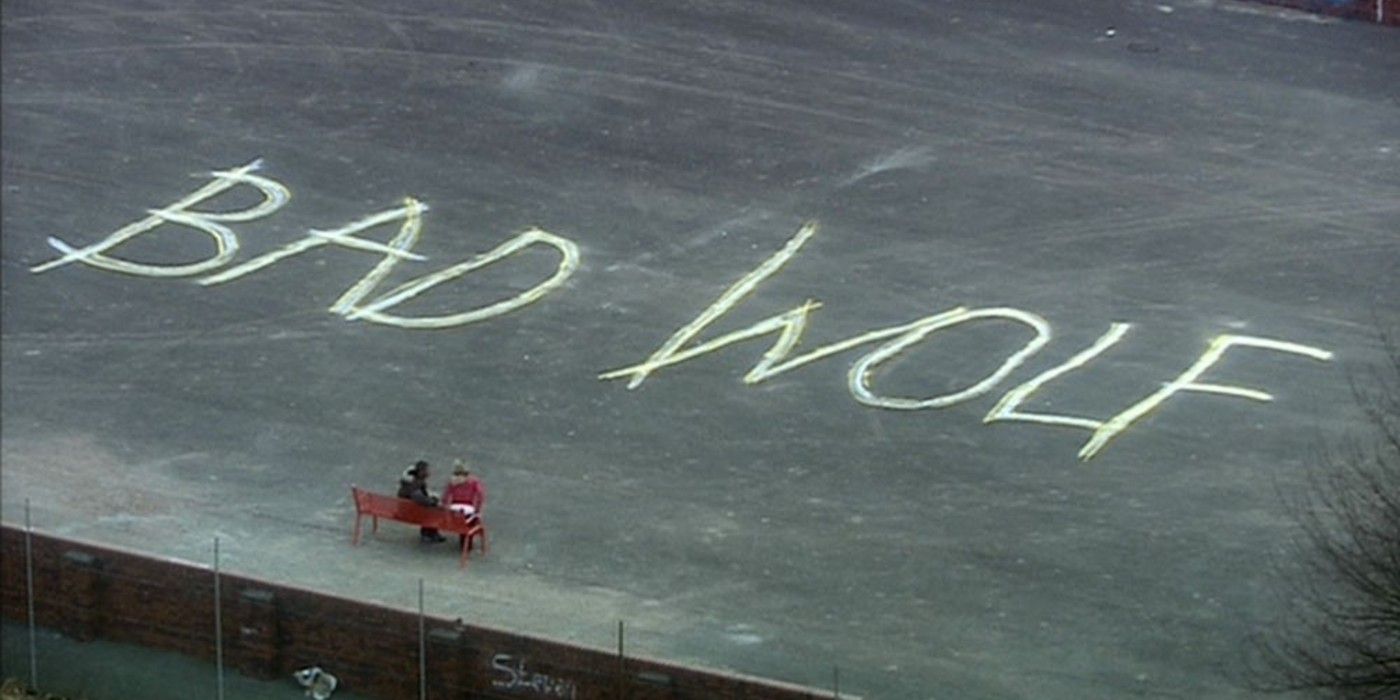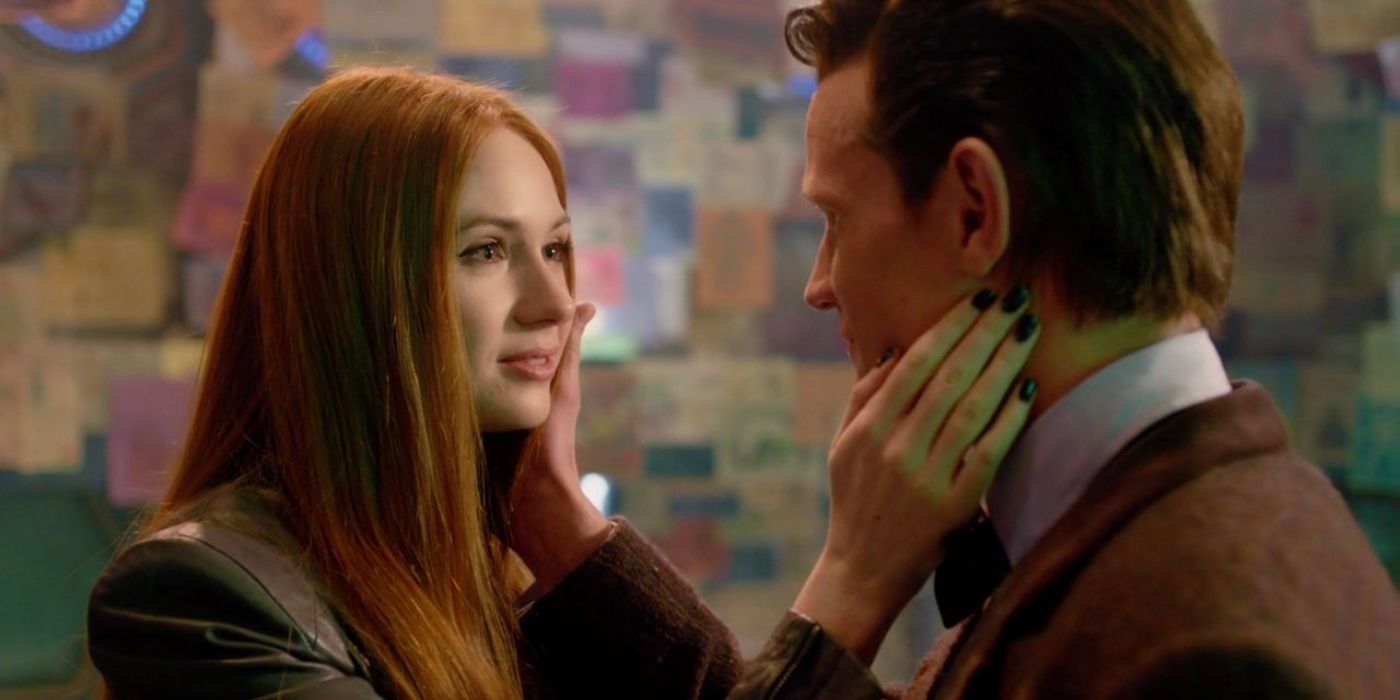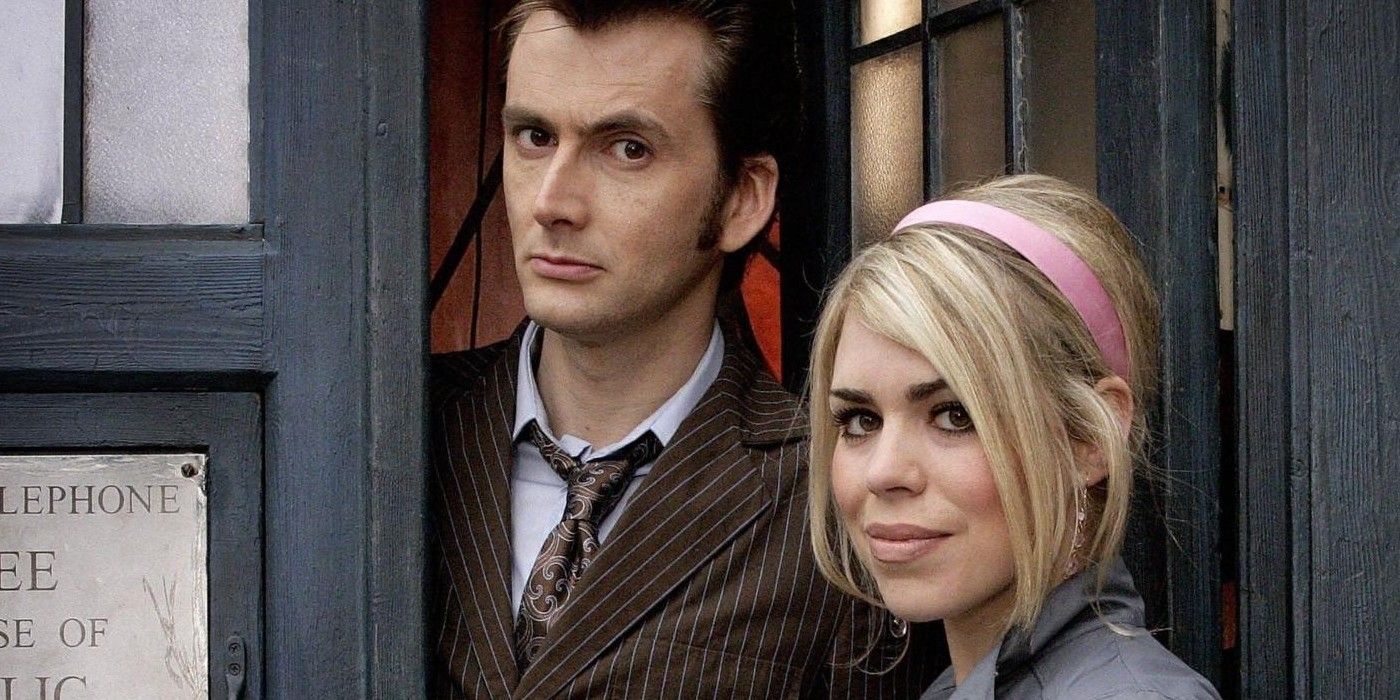Russell T. Davies' Doctor Who era has aged more gracefully than any other modern showrunner's time behind the TARDIS console - here's why. When Russell T. Davies finally landed his long-coveted gig of reviving Doctor Who in 2005, he perhaps didn't imagine doing it all again 16 years later. Current Doctor Who chief, Chris Chibnall, announced his departure alongside the Thirteenth Doctor herself back in July, but while Jodie Whittaker's successor remains in the ether, Davies' grand return is confirmed, beginning with the 60th anniversary special and forging into the subsequent season.
RTD masterminded the revival of Doctor Who with Christopher Eccleston in the title role, and built upon that early success with David Tennant before handing the reins to Steven Moffat, who had impressed with a string of acclaimed episodes during RTD's era. Moffat took charge with Matt Smith's Eleventh Doctor and Peter Capaldi's Twelfth, before relinquishing control to Chibnall. Though Doctor Who's past 2 seasons received mixed reactions, RTD and Moffat both enjoyed huge success leading Britain's biggest sci-fi export.
Nevertheless, it's the original Russell T. Davies seasons that many Doctor Who fans might admit to remembering more fondly (if forced to choose with a sonic screwdriver to their heads), and RTD's popularity with viewers has undoubtedly contributed to his 2023 return. But why has the 2005-2009 stretch of Doctor Who aged so well, even compared to Steven Moffat's era?
Russell T. Davies Set The Modern Doctor Who Template (& Did It Best)
A hefty chunk of the modern Doctor Who recipe was laid out by Russell T. Davies, and that's partly why his era has aged like a fine Traken wine. Indeed, it's easy to underestimate how revolutionary RTD's debut Doctor Who season was. Single-episode stories, long-term arcs, grandiose season finales, quasi-romantic TARDIS pairings, catchphrases, constant sonic screwdriver pointing - all of the above and more were introduced by Davies and his team ahead of Doctor Who's 2005 relaunch. Though Steven Moffat added his own quirks and qualities upon taking charge in Doctor Who season 5, his era was very much a continuation of the foundations RTD left behind.
Both showrunners peddled near enough the same tonal balance of alien comedy and swashbuckling adventure, while early interactions between the Eleventh Doctor and Amy Pond mimicked the controversial RTD "snogging" craze. Moffat would also carry forth RTD story threads such as the Time War, the Dalek revival, Gallifrey's destruction, and The Master. And, as with most things in life, he who did it first did it best. Steven Moffat build upon RTD's creation in new and exciting ways but, ultimately, it's the initial baking of Doctor Who's modern ingredients that tastes best in the here and now.
The romantic companion gimmick hasn't been bettered since Rose and Ten, with Karen Gillan only coming into her own after Amy stopped making moves on her "Raggedy Man." No season finale blowout has ever come close to matching "The End of Time" for sheer scale, and the lonely Doctor plagued by memories of Gallifrey's destruction was much simpler before Moffat started foreshadowing the planet's revival. Steven Moffat added plenty to Doctor Who, but he was playing the board Russell T. Davies set, and those original, undiluted ideas have, predictably, aged better. Perhaps if Moffat had first crack, the situation would be reversed.
RTD's Doctor Who Is Easier To Rewatch Than Moffat's
The most vital factor in how a TV series ages over time is rewatch value, and Russell T. Davies' Doctor Who easily outpaces Steven Moffat's era for longevity. Both showrunners have spoken openly about aspects of their respective Doctor Who runs they'd change if a trip in the TARDIS were possible, but Moffat's seasons suffered from convoluted storytelling that makes rewatch sessions (of Matt Smith's reign especially) more taxing than they should be.
Russell T. Davies mastered season-long storytelling in Doctor Who. He'd drop a phrase like "Bad Wolf" or "Saxon" early on, and the meaning would inevitably be unveiled come the season finale. That cycle of build-up and pay-off might seem a touch simplistic compared to Doctor Who's more recent, ambitious seasons, but RTD's method was both economical and effective. By contrast, Steven Moffat stretched ideas such as Trenzalore, the Silence, The Doctor's name, and the history of River Song across multiple seasons, entwining Matt Smith's entire regeneration with narratives that are best described as wibbley-wobbley. Perhaps even timey-wimey.
In "The Name of the Doctor," for example, Matt Smith learns that Trenzalore is his future resting place, with the TARDIS his tomb, but after the Siege of Trenzalore in "The Time of the Doctor," he regenerates safely into Peter Capaldi. One season earlier, The Doctor was supposedly killed by a spaceman in front of a shocked River Song. The spaceman was River Song who was only pretending to be shocked, but River was acting under duress from the Silence, who wanted the Doctor dead, even though they ended up working with him in the final battle anyway... and mental exhaustion has set in. Back in RTD's day, a bunch of characters said "Saxon" a lot, and then The Master appeared.
There's beauty in simplicity sometimes. Watching Steven Moffat's Doctor Who with the benefit of hindsight, it's easy to spot where certain clues or details don't match the eventual answer. Revisiting Russell T. Davies' era, Doctor Who fans are less likely to drop their Jelly Babies in frustration.
Moffat's Clever Soundbites Haven't Aged Well
There's a general sense among Doctor Who fans that whilst Russell T. Davies was the superior showrunner, Steven Moffat was the superior writer. Certainly, that's an easy case to defend. Pitting RTD's scripts against Moffat's is a no contest in the latter's favor. On the other hand, the most popular modern Doctor Who episodes derive mostly from RTD's time as showrunner.
While Steven Moffat will go down as one of Doctor Who's best ever scribes, his penchant for pithy, quotable soundbites comes with diminishing returns. Clever one-liners like, "never trust a hug... it's just a way to hide your face" or "run, you clever boy... and remember" are thought-provoking and poetic initially, but there's a thin line between genius and showing off. A speech that comes across super-smart when the episode first airs becomes increasingly contrived the more often it's heard. Before long, the quote sounds less like The Doctor and more like Steven Moffat himself - especially for those familiar with Sherlock and other projects from his pen.
Russell T. Davies' Doctor Who writing is less obviously identifiable. The monologues may not be as wordy or eloquent, but neither does the dialogue feel like RTD writing through his characters.
RTD's Doctor Who Themes Are Even More Relevant Now
Doctor Who has always championed a liberal social and political perspective, and though the world has changed drastically since Russell T. Davies departed Team TARDIS, the values and messages weaved throughout his era are more relevant than ever. Amy Pond and Clara Oswald were both presented as "fated" companions, intrinsically linked to The Doctor's history. RTD's trio of Rose, Martha and Donna were ordinary women thrown into extraordinary situations. Though Moffat would later explore this route himself with Bill Potts, the RTD ethos of proving seemingly insignificant earthlings are capable of changing the universe carries more weight than ever.
The numerous invasions of Downing St. that occurred under Eccleston and Tennant's watch (as well as Harriet Jones, Prime Minister) give Doctor Who's Russell T. Davies' era a subtle political subtext that plays even better following Britain's baffling brush with Brexit. It's the same for RTD's parodies of reality TV, the subjugation of the Ood, human reliance on technology, and environmental disaster - all of which were apt to a 2005 audience and have only become more appropriate in 2021.
Family was the overriding theme of Russell T. Davies' Doctor Who. Whether it be Rose's parallel dad, abusive father figures (The Idiot's Lantern, Fear Her), the companion coalition, or The Doctor's lack of fellow Time Lords, RTD's era orbited around familial ties, blood or otherwise. It's the most evergreen of topics that helps Doctor Who's first seasons under new management feel just as fresh and vital today as they did upon airing.

